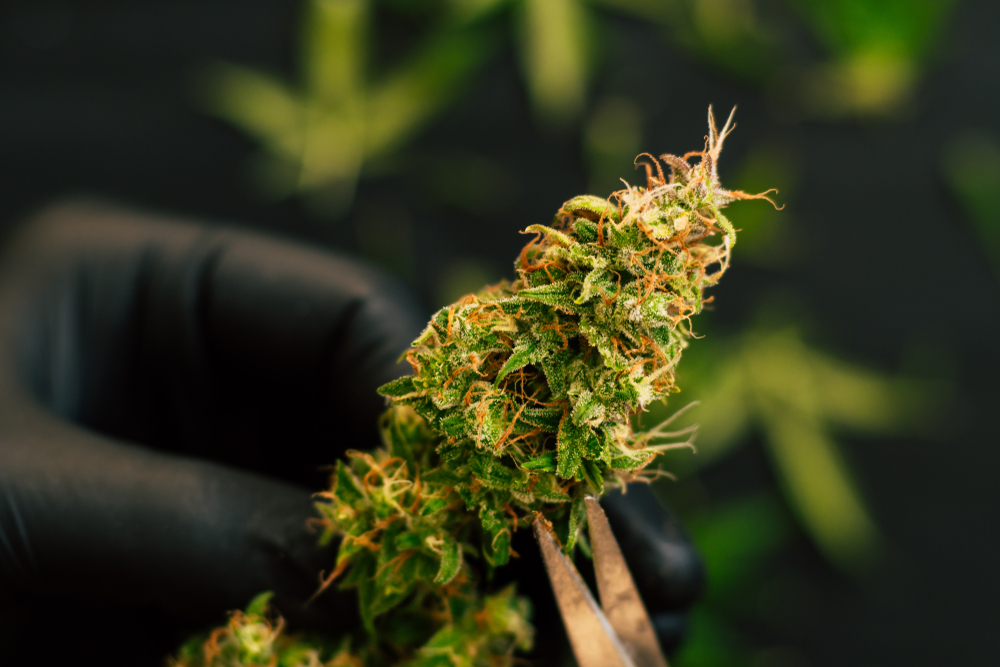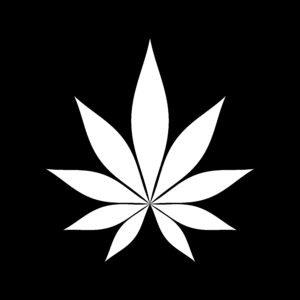Tetrahydrocannabivarin, or THCV, is a compound found in many different cannabis strains. As the name implies, it has many similarities to the compound well-known for producing psychoactive effects – THC; but there are some key differences.
THCV, or Tetrahydrocannabivarin, is present in many different strains of marijuana – sometimes in low quantities, up to moderate and sometimes high. THCV does not have the same psychoactive properties of THC, but it does produce its own type of cerebral effects, which are described as feeling euphoric and quite unique.
One of the most contradicting effects is that, while THC is known to cause the “munchies”, THCV is an appetite suppressor, making it a popular option for people who enjoy cannabis but are trying to watch what they eat.
Not very many strains are naturally dominant in THCV, but we know of a handful that are and of course, innovative cannabis companies are always finding ways to extract and isolate cannabinoids to make exciting new products for the masses.
But first, let’s dive into some more details on THCV – what it is, what the effects are, and where you can find it!
To learn more about cannabis, and to get deals on flowers and other products, subscribe to the CBD Flowers Weekly Newsletter
What is THCV?
THCV is homologue of the THC cannabinoid, but it only has a three-carbon side chain instead of five, which is more common. The change may seem minor from a chemical standpoint, but it translates to very different effects between these compounds.
Just like THC, THCV can also have different structures. So far, researchers have discovered both Delta 8 and Delta 9 THCV. Delta 8 has a double bond on its 8th carbon chain, whereas Delta 9 has the double bond on the 9th chain.
THCV is a full antagonist to type 1 cannabinoid receptors, and a partial agonist to type 2 receptors. Delta 8 THCV has also been shown to be a CB1 antagonist. Both papers, here and here, describing the antagonistic properties of THCV were demonstrated in murine (mice) models, so of course, more human research is necessary so we can really know the possibilities here.
Unlike other cannabinoids – namely THC, CBD, or CBC (cannabidiol and cannabichromene) – THCV doesn’t begin as cannabigerolic acid (CBGA). It does start as a plant acid, but one that has a few less carbon atoms. The result is cannabigerovarin acid (CBGVA) which is broken down to tetrahydrocannabivarin carboxylic acid (THCVA) by an enzyme in the plant, THCV synthase. From then, the process gets familiar – THCVA is decarboxylated via heat or UV light exposure and THCV is created and consumed.
Medical Benefits of THCV
THCV has numerous therapeutic uses, in addition to appetite suppression which can be beneficial for consumers who are focused on diet and weight loss. Research found that THCV can improve metabolism and blood glucose, while reducing insulin dependence, in both animal AND human models with type 2 diabetes.
THCV has also been used to minimize anxiety attacks, without suppressing emotion, in patients suffering from PTSD. This compound can also reduce muscular tremors associated with Parkinson’s disease, Alzheimer’s disease and ALS, and has also been shown to reduce the brain lesions that occur in the later stages of Alzheimer’s.
Another interesting use for THCV is to stimulate bone growth. THCV has been found to “stimulate the recruitment of quiescent mesenchymal stem cell present in bone marrow,” making it a promising, natural treatment options for osteoporosis, osteogenesis imperfecta (OI), and other bone-related diseases and conditions.
According to Dr. Michael Moskowitz, president of the Bay Area Pain Medical Associates, “THCV [is] analgesic and anti-inflammatory, it’s neuroprotective, which means it protects the nervous system. It’s anti-nausea and vomiting. It helps with bone health and bone formation, it’s sleep-promoting, it’s anti-epileptic, it’s anti-anxiety. It’s a major anti-psychotic. And it helps with appetite suppression, it’s anti-diabetic and it’s anti-cholesterol.”
Does it get you high?
Between the two most abundant cannabinoids found in cannabis, THC is famous for being the intoxicating compound, and CBD, its polar opposite, is known for being completely non-psychoactive. As we continue to learn about the lesser-known compounds found in cannabis and move through the different levels of discovery and scientific research, there is always a lingering question that remains: “Does it get you high?”
Early studies on Tetrahydrocannabivarin suggested that THCV had roughly one quarter of the potency of THC, confirming that it does have some psychoactive components, however mild. Newer research added another layer to this finding though, noting that the effects of THCV changed based on the dose. At lower doses, THCV didn’t have any psychoactive effects, but in higher doses the effects were similar to THC.
Even so, there were some key differences. Again, THCV dulls the appetite, while THC has a reputation for causing what’s known as the “munchies” THCV is also described as producing a more cleared head and uplifting high. A THCV-induced high also seems to set in quicker yet dissipate faster, demonstrating about half the duration of a THC high.
Strains High in THCV
By now I’m sure you’re sold on THCV: has you feeling a euphoric kind of high, while suppressing your appetite and offering all these other medical benefits – sign me up! But, like most minor cannabinoids, THCV is rarely found in large quantities in dispensary (or black market) buds.
In the future, there will be a nice variety of THCV products available online and on store shelves, but until then, there are a few strains that are known to be dominant in the compound, and they all have genetics tracing back to a specific region of the world, panning from Eastern Africa to parts of the Middle East.
Lab results also show that strains high in THCV are usually landrace sativas. Durban Poison is one of the most well-known THCV strains, but a few others include Doug’s Varin, Willie Nelson, Skunk no. 1, Pineapple Purps, and Power Plant.

As time goes on, more strains will be bred specifically to be high in THCV, and a larger array of products will become available. For now, you can find some concentrates, vape cartridges, and tinctures containing THCV, but remember to always verify the safety and legitimacy of the products your buying.
Final Thoughts
Much like most of the compounds found in cannabis, THCV (Tetrahydrocannabivarin) has many medical benefits that can be applied to a myriad of conditions, from mild to severe and debilitating – not to mention it has some fun psychoactive effects as well.
So, to answer the original question, “how are THCV strains different from what you’re currently smoking on?” They’re really not that different, but to find natural flower with THCV, you’ll have to search for specific genetics. Luckily, that’s not so difficult to do in certain markets; others will have to wait until these specialty products are available on a larger scale.
To learn more about cannabis, and to get deals on flowers and other products, subscribe to the CBD Flowers Weekly Newsletter and make sure to check back with us here at CBD FLOWERS, your hub for all things cannabis-related!













